No Discrimination in Parenthood, No Matter What
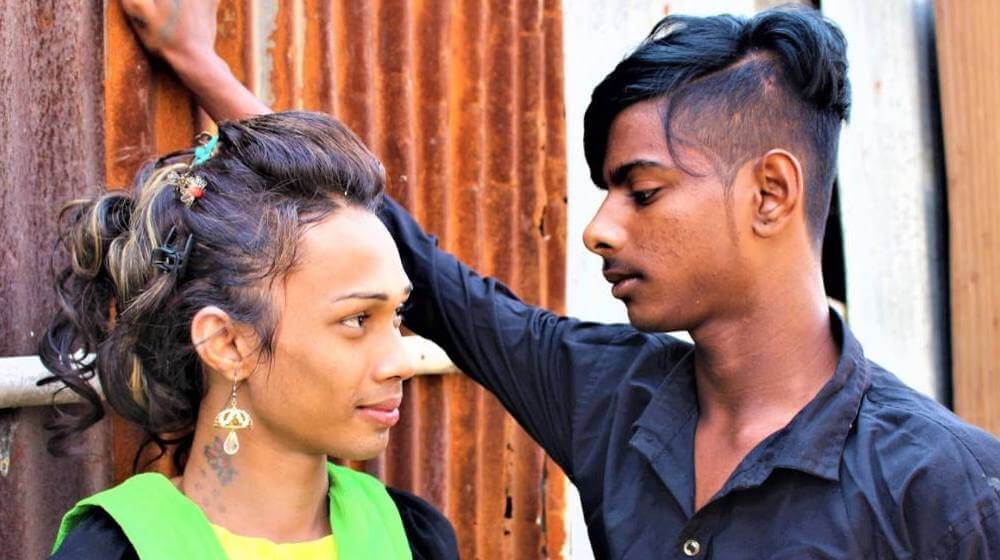
Every person has the right to decide if, when, and with whom they want to have children. At UNFPA, we work tirelessly to ensure this right is upheld. And usually, this means providing every person with comprehensive sexuality education and access to family planning. These resources are especially important for women, who stand the most to gain in terms of autonomy, happiness, and safety when they are able to control their decisions about their bodies and health.
But what do you do if you want to have children and can’t?
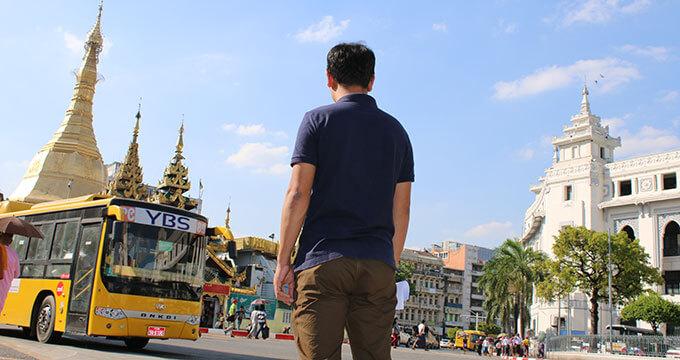
Any couple can experience infertility, but for couples where one or both partners identify as lesbian, gay, bisexual, transgender, queer, or intersex, more commonly known as LGBTQI, becoming a parent presents unique challenges. The UN recognizes the right of LGBTQI people to not be discriminated against, including when they access fertility care. However, in practice, becoming a parent as an LGBTQI person means overcoming discrimination and facing legal, financial, and medical hurdles.
LGBTQI Rights Around the World
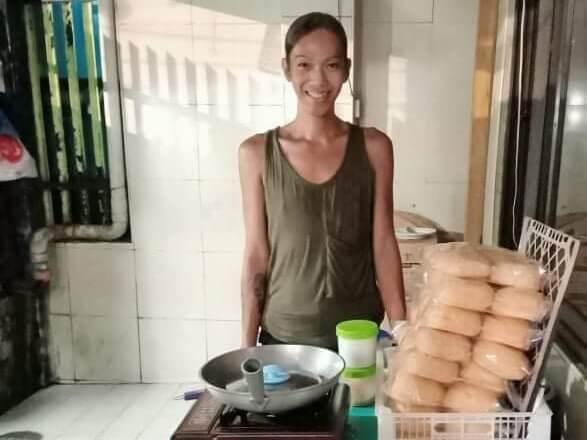
Only about two dozen countries, or less than 15 percent of the globe, have legalized same-sex marriage. And, Denmark, the first country to legalize same-sex marriage, only did so about 30 years ago. The legal right to marry indicates a general acceptance of LGBTQI identities, relationships, and experiences. And, by extension, the pathway to parenthood can be easier. Some countries or adoption agencies, for example, prefer to adopt to married couples.
However, despite the progress that has been made, there are still 69 countries that criminalize LGBTQI activity. This creates a situation in which the experiences of LGBTQI people in different parts of the world vary greatly, and with it, so does their ability to become legal parents. A lesbian couple in the United States, for example, might openly share their relationship. And, they might find it relatively easy to access assisted reproductive technology, like in vitro fertilization (IVF). At the same time, a transgender person in Bangladesh may face intense social discrimination and a gay man in Nigeria could risk prison time for his sexuality. In cases where stigma against LGBTQI people is high, couples may decide that pursuing parenthood is not worth the hardship.
Informal Parenting Arrangements
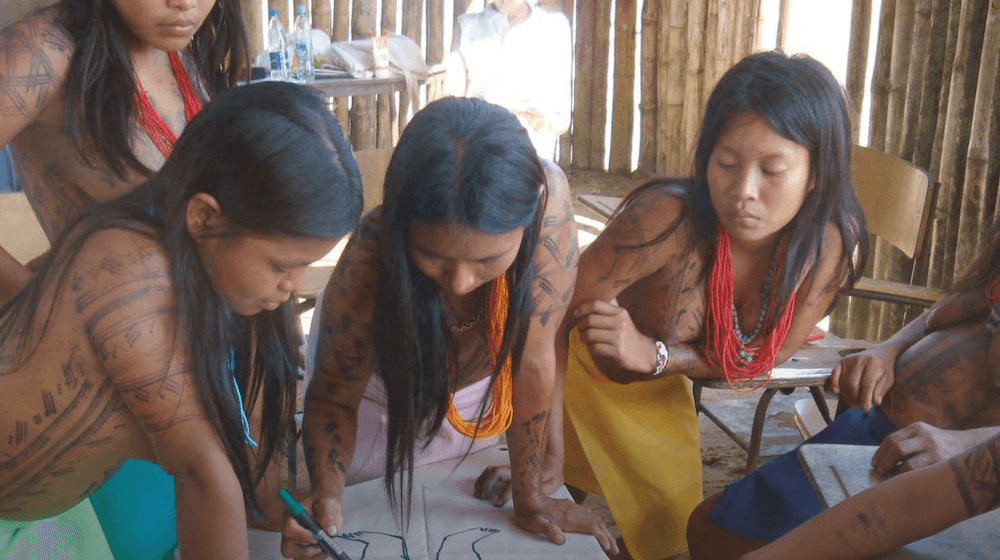
Other couples may decide to raise a child without obtaining legal parental rights. This is the case in informal adoptions, where the adoptive parents are caretakers for the child but are not their legal guardians. Informal adoption is more common in communities where multi-generational or extended families are the norm, like in southern and eastern Europe, Asia, the Middle East, Africa, the Pacific Islands, and Latin America. In the United States, Black families have practiced informal adoption for centuries. Parents successfully raise children without having a legal relationship to the child all of the time. But, having legal parental rights makes interactions with banks, schools, doctors, and other administrative offices easier.
Family-building for every LGBTQI couple is different and somewhat depends on the sex of the parents. Some LGBTQI couples can have children on their own. While others may opt for adoption, surrogacy, co-parenting, or assisted reproductive technologies.
Adoption and Fostering
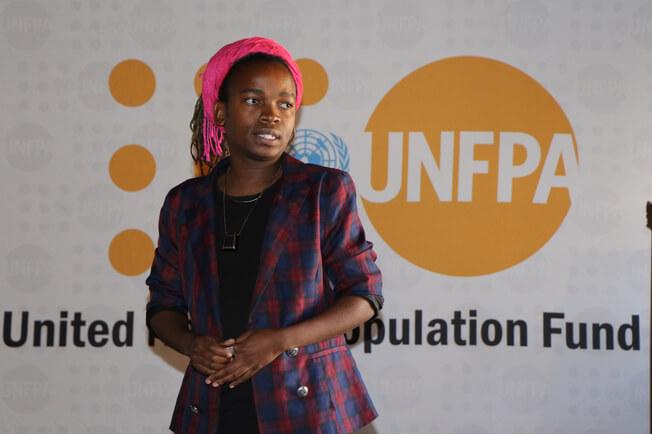
the challenges she and others face while trying to accessing health
services. © UNFPA Botswana
Adoption is one well-known way for LGBTQI couples to become parents. Couples often work with an adoption agency and the adoption can be open, where the birth parents and adoptive parents know each other, or closed, where they don’t. Adoption agencies sometimes use discriminatory practices against LGBTQI couples. Further, there may be extra steps for LGBTQI couples opting for international adoption. Some countries outlaw adoption by LGBTQI couples or the practice exists in a legal grey zone.
Fostering is another option for hopeful parents. In a formal fostering scenario, the state or national government place children with foster parents. The state also ensures that a certain quality of care is maintained. Often, the best option for the child is to remain with relatives. As in adoption, discrimination can play a role as to whether LGBTQI couples are able to become foster parents. Further, foster programs vary significantly around the world and many countries are reliant on broken and archaic systems. Navigating such systems as an LGBTQI couple makes parenthood that much more complex.
Assisted Reproductive Technologies, including Surrogacy, Sperm and Egg Donors, Intrauterine Insemination (IUI), and In Vitro Fertilization (IVF)
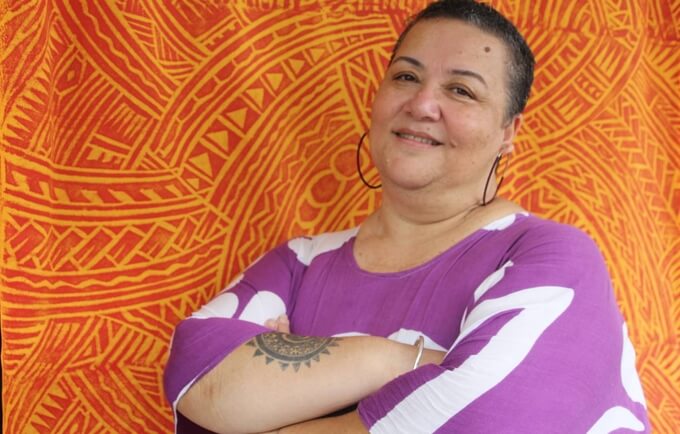
Assisted reproductive technology (ART), is a broad term for medical interventions that help couples have biological children. ART includes such procedures as surrogacy, sperm and egg donors, and in vitro fertilization (IVF).
Surrogacy is one way for LGBTQI couples to create a biological connection to their children. This connection simplifies some legal processes for LGBTQI parents, but couples must grapple with the expense and ethics of surrogacy.
In surrogacy, three different pieces have to come together to make a baby. You need a sperm donor, an egg donor, and a surrogate. Sometimes, the egg donor and the surrogate are the same person, but they don’t have to be. For example, one partner of a gay couple could donate sperm for a surrogate. The donor sperm fertilize the donor egg, and, the surrogate would undergo in vitro fertilization, or IVF, to have the embryos implanted into her uterus. If all goes well, a baby should begin to develop.
Lesbian couples can also opt for surrogacy. In this case, one partner would donate their eggs, which would be fertilized by donor sperm. Then, the surrogate would become pregnant through IVF. In LGBTQI couples where one partner is biologically female, donor sperm in conjunction with IVF or intrauterine insemination can be used to create a healthy pregnancy in the biological parent.
Ethical Issues of Surrogacy
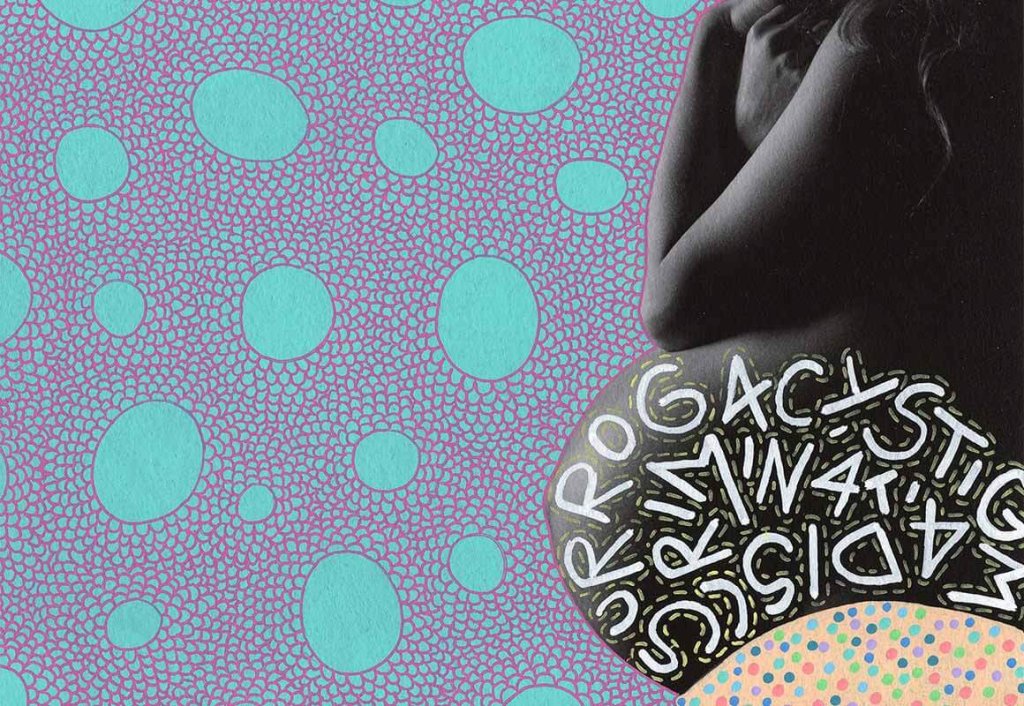
A cloud of legal hurdles and ethical questions surround surrogacy. The UN calls for strong regulations around the practice to prevent what they call, “the sale of children.” Some countries don’t allow commercial surrogacy, which is when the surrogate receives payment for her services. Other countries have banned surrogacy altogether to protect would-be surrogates from trafficking, exploitation, and abuse. However, this has raised concerns about women’s autonomy to make choices about their bodies and reproduction, including the choice to become a surrogate.
In Mexico, Josefina became a surrogate partially for the money, but also because she had an “opportunity of helping others get something they really desired: a baby.” Tragically, the first surrogacy agency she worked with exploited its surrogates and Josefina was worried about being trafficked. She was able to contact the intended parents and move to another agency. However, other women are certainly not as lucky. Josefina believes that regulations, not restrictions, are the best way to keep surrogates like her safe. “If it was legal, people would feel safer,” she said. UNFPA works to ensure that all pregnant women, including surrogates, have healthy pregnancies and safe deliveries.
Co-Parenting
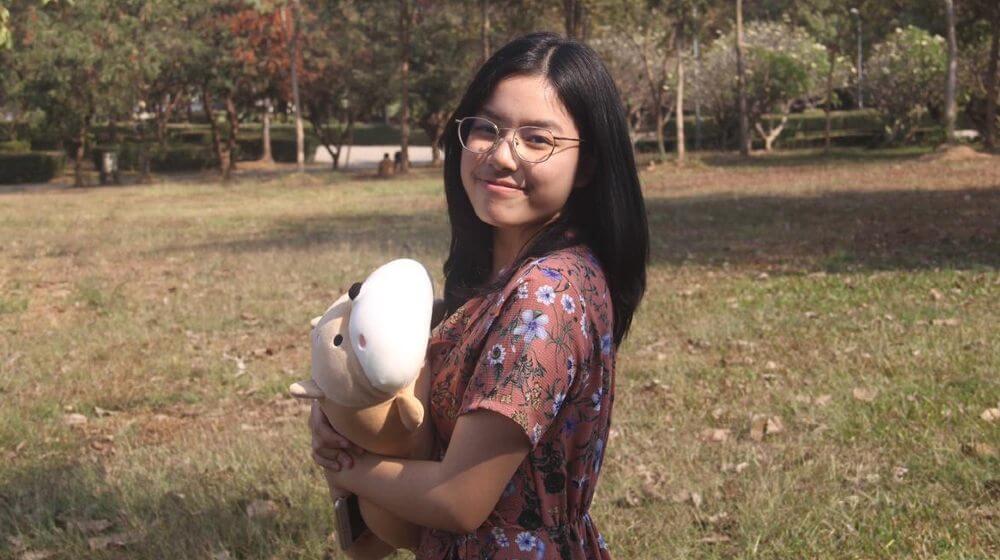
Co-parenting is an arrangement between two or more adults, who are not necessarily romantically involved, in which they raise a child together. A common example of co-parenting is between divorced parents who share custody of their children. LGBTQI parents often agree to a co-parenting arrangement before the child is born. All parents, whether biologically related to the child or not, share in raising the child. For example, a gay couple and a lesbian couple could agree to a co-parenting arrangement in which one partner of the gay couple would be the sperm donor and one partner of the lesbian couple would be the egg donor, and both couples share custody of the child.
LGBTQI couples could also have children from a previous heterosexual relationship. Here, co-parenting would resemble co-parenting between divorced parents. An example of this would be a bisexual man who had previously had children while partnered with a woman, but is now partnered with a man.
Co-parenting arrangements can come in almost limitless variations. And, depending on the method of conception, co-parenting may be less expensive and present fewer legal hurdles than other options.
Parenthood for Transgender People
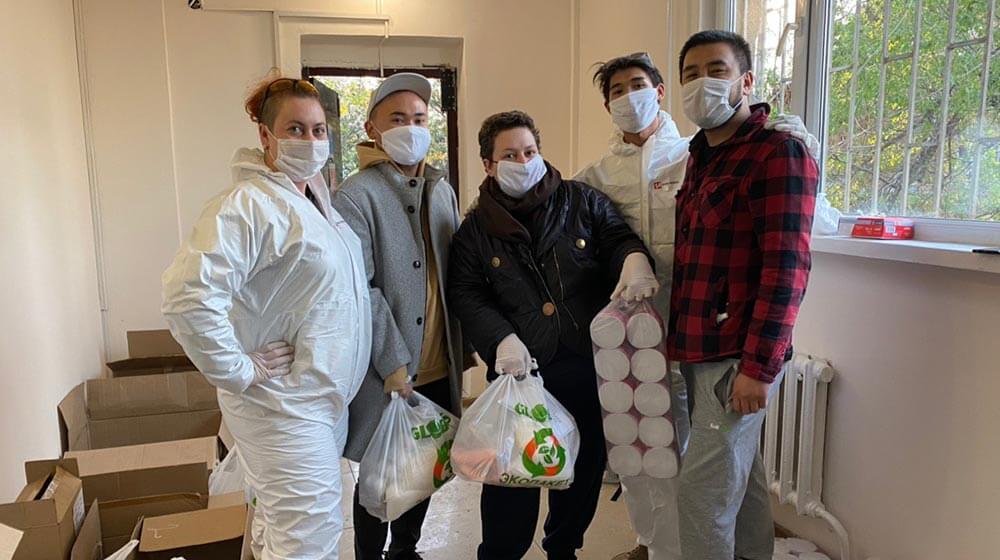
Transgender and intersex are two different identities and experiences within the LGBTQI community. Transgender people identify with a gender that is different from their birth sex. Intersex describes people that are born with physical, genetic, and/or hormonal characteristics that are not typically female or male. Neither identity determines a person’s sexual orientation and someone could be both transgender and intersex.
Each transgender and intersex person has different circumstances that affect their fertility, but it is possible for some transgender and intersex people to become biological parents. This is dependent on their bodies, hormones, and partners. And, they may need the help of sperm or egg donors, surrogates, or other assisted reproductive technology, like sperm or egg freezing.
However, it is not always easy to access LGBTQI health care. In Kyrgyzstan, Daniyar and Ayim have a difficult time finding doctors who understand the issues they face as transgender people. Having access to a doctor who recommends sperm or egg freezing before beginning hormone therapy can make all the difference for hopeful transgender parents. UNFPA works in Kyrgyzstan and around the world to increase sensitivity toward transgender and all LGBTQI patients in health care settings.
Intersex Parenthood
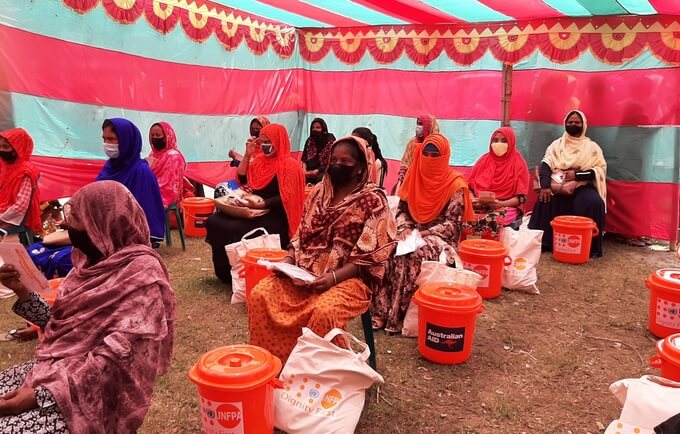
Until recently, it was widely accepted that intersex infants would undergo surgery to bring their bodies closer in alignment with their determined sex. Because of the surgery, some people never realized they were intersex, or only realized it much later in life. Sadly, intersex people may face fertility challenges that could have have been avoided if they had known their status earlier.
Today, the UN recognizes surgeries on intersex children as violations of bodily autonomy. The UN advises parents and doctors to wait until the child is old enough to give “meaningful consent” before performing such a surgery.
Even though the ability of LGBTQI couples to become parents varies greatly around the world, strides are being taken every day to ensure that every person can make decisions for their body and has access to the sexual and reproductive health care that is their right. UNFPA works around the world to eliminate discrimination toward LGBTQI people and to increase sensitivity to their health needs.
-Dana Kirkegaard